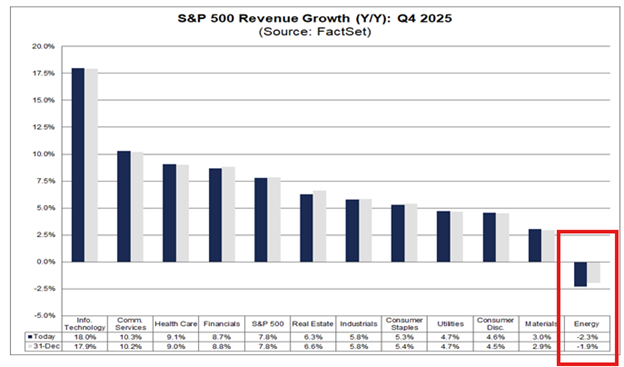In 1972, members of the newly created Libertarian Party wanted Murray Rothbard to be their candidate in the coming presidential run. During an interview, when asked about this possibility, Rothbard first had a long laugh. After laughing, he stated that he did not think that it was even the time to create a libertarian party, simply because there were not enough libertarians, but that if there was eventually a strong libertarian party, several things could be achieved: with some congressmen elected, some statist measure could not be approved, others could be abolished, etc. But that the best thing would be that such a party could be used as an educational weapon.
In fact, during the election period, some people seek to know the candidates’ proposals to solve social problems, and is a good thing to reach these people through the proposals of a libertarian party, trying to show them basically that these problems are caused by the state and solved by eliminating its interventions. Elected libertarian politicians can’t accomplish much unless they form a majority. But even a solitary elected libertarian politician can do a lot, for his office functions as a constant soapbox and as a (undue but real) sign of respectability in the eyes of the general public.
Ron Paul is an example; during his years as a congressman, he could not even delay the state’s massive expansion, let alone shrink it – but he used his position to spread libertarian ideas. Not since the success of Ayn Rand’s novels (who was not a libertarian), libertarianism had never had such public exposure, and after Ayn Rand, it was Ron Paul’s political enterprise that created the most libertarians in the world.
Today, libertarianism has a new lone star, Javier Milei, president of Argentina and a public figure with global reach. As president, he can do little to stop Leviathan. As I mentioned above, just a libertarian congressman could do nothing, but things aren’t much different with respect to a president. The democratic system serves very well the expansion and maintenance of the statist quo, but it represents an almost insurmountable obstacle to its reversal.
In the first 100 days of his government, Milei has already faced this kind of resistance. Even though he was able to cut costs and deliver Argentina’s first surplus in more than a decade, his liberating “Ley Omnibus” was rejected by Congress, and his executive order abolishing a series of interventions was rejected by the Senate. Both actions would free Argentines from heavy chains and put the country on the path to prosperity.
Parallel to the executive task, Milei has taken advantage of the political stage to propagate Austrolibertarianism – and this might be his greatest legacy. If in foreign affairs he continues to embarrass libertarians with his support for the Palestinian genocide perpetrated by the State of Israel and support for Zelensky and the US proxy war against Russia. When it comes to talking about economics, Milei is doing a great job. Jeff Berwick complained when Milei declined his invitation to speak at Anarchapulco, going instead to the globalist WEF. However, to participate in the anarcho-capitalist event would be to preach to the (few) converts, while his speech at Davos reverberated worldwide. Another major stage that was opened to Milei was that of CPAC.
It has been pointed out in several places that Milei faced an adverse audience in Davos, throwing in the faces of those present that they themselves were the problem; but the same was true at CPAC. While at Davos it is quite obvious that Milei presented ideas antagonistic to those of the socialist cabal of the political and economic elites of the WEF, he also attacked head-on the statist socialist ideas of the CPAC conservatives. The speech at CPAC was a complement to the Davos speech, and it began like this:
First of all, thank you very much for this invitation. As for today’s conference, given the impact of the Davos conference, in which I pointed out that the West is in danger, given the advance of statist ideas, today I’m going to focus on the technical underpinnings that underpinned those political views, at that conference.
Jesús Huerta de Soto has already stated that he regretted having given the title of his book Socialism, Economic Calculation and Entrepreneurship, because the proper title would be “Statism, Economic Calculation and Entrepreneurship,” and Milei begins his speech by making this clear: the problem is not socialism, but statism. At Davos he said that “the main leaders of the West have abandoned the model of freedom, for different versions, of what we call collectivism”; at CPAC he clarifies that statism, advocated by conservatives, is one such form of collectivism. He continues:
In this sense, I will focus on how neoclassical economics and its view of market failures are functional to the advancement of socialism and how this destroys economic growth by curbing improvements in well-being and the fight against poverty.
Neoclassical economics is mainstream economics. It is economics that is exclusively taught in virtually every college in the world. It is the economics that every minister of economy considers in his mismanagements. It is the economics that every Central Bank bureaucrat uses in his daily life as a counterfeiter of money. It is the economics that every expert media commentator uses to justify to the public the criminal interventions of the state. Not only the Davos audience, but also the entire CPAC audience subscribe to neoclassical economics, and based on their errors, justify and support the existence of the state and its interventions in the free market. Milei gives an economics lesson to the unwary and highlights the concept of “market failures” as the most pernicious neoclassical error. He explains what the market is and logically concludes that “market failures” do not exist and “in reality, all these elegant definitions are elements that make possible the intervention of the state and with it the advance of statism and socialism.”
Milei once was one of those fake economists who graduated in neoclassical economics and became a professor of economics. As Milei reported when he received his honoris causa doctorate, “the vast majority of places that teach economics in Argentina train us as Marxist Keynesians... We are taught that the state is good and the market is bad.” Milei was on an intellectual journey trying to find answers to contradictions he had been encountering in neoclassical economics.
One fine day – and what a fine day that was – a Milei’s fellow traveler handed him a 150-page text by Rothbard entitled “Monopoly and Competition.” After finished reading it he said, “I’ve been deluding students for over twenty years. Everything I taught them about market structures is wrong.” So, he never stopped reading Austrians, learned real economics and stopped being a false economist. And that wasn’t so long ago; back in 2013, Milei was praising Fed Chairman Ben Bernanke. Milei proved to possess intellectual humility and integrity, a very rare quality. It’s hard enough for anyone to recognize small mistakes; much harder is to admit you’ve been wrong for decades.
In another speech to a more specialized audience, Milei noted that “the vast majority of … economists,... discuss the problem of inflation and they don’t understand what money is.” Then he gave a basic and necessary lesson on how a barter economy transitions into a monetary economy with the introduction of a medium of exchange.
Because of this deplorable state of economic illiteracy, Per Bylund called for a new Methodenstreit. Not that new theories need to be refuted by Austrians, but that old theories, some rehashed, already refuted a century ago, are still being taught and practiced as if they were perfectly valid. Yes, a new Methodenstreit is needed to once again unmask the fake economists, and Milei is calling them into the fray.
Since the Methodenstreit, Austrian economists have continued to reassert their superiority, demonstrating the inconsistencies of the spurious economic theories that dominate the mainstream, like Frank Shostak, who for many years has been constantly writing articles that, starting from a proposition of the false economists, applies the Austrian paradigm and gives a class by dispelling the economic myth in question – but always to a small audience. Now Milei is shouting to the world, pointing out the ultimate and fatal errors of the neoclassicals. Huerta de Soto stated that he has been saying the same things as Milei in his classes for 40 years, but that now, thanks to Milei, they are having a universal echo, and because of that, Milei deserves to win the Nobel in economics.
To see these ideas now resonate globally is a delight. Although he is a disgrace as a libertarian – or at most as a microlibertarian, being more of a neocon zionist – and even if he is prevented from making effective liberating changes in the Argentine state apparatus, Milei’s achievement in promoting true economics is really fascinating.
Full story here Are you the author? Previous post See more for Next postTags: Featured,newsletter

























